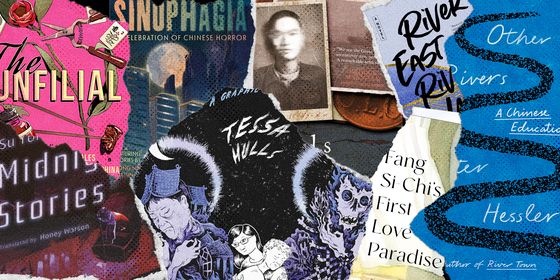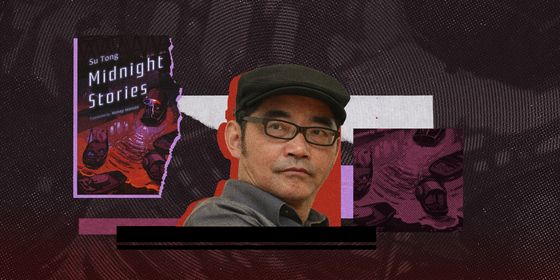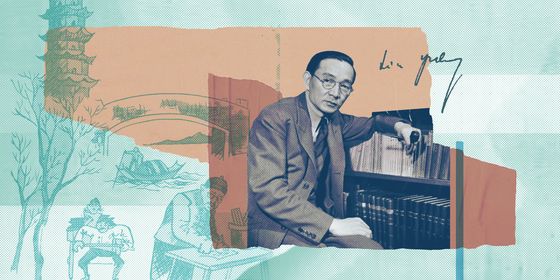The Book of Swindles reveals a Ming society riddled with dishonesty, debauchery, and double dealing
Crime takes many forms, not all of which are recorded in official statistics. Scams are among the most common, so pervasive and insidious that warnings and anti-con campaigns appear almost everywhere. Almost everyone has been a victim of at least one attempted trick: From a “landlord” calling up to demand a bank transfer, to spam text messages, dating hoaxes, street swindles, fake dating profiles, fake goods, false monks—the list goes on.
And if Chinese scams seem more inventive, multifarious, and ingenious than those taking place elsewhere, perhaps it is because they have such a long and inglorious history. A new book, edited and annotated by Columbia Asian Studies professors Christopher Rea and Bruce Rusk, gives some factual basis to this rambunctious tradition.
The Book of Swindles is the earliest collections of cons known in Chinese literature, and offers a wealth of imagery and insight into the underbelly of Ming society (1368 – 1644, the translators deserve extra credit for reproducing an ancient text, parts of which even many Chinese would find hard to decipher, and doing so with a vernacular verve and vividness; this is a scholarly work but not an academic exercise). In this old world, it is in cities where most of the mischief occurs: Shanghai, for example is often a sketchy center of hookers and hoaxers, centuries before it earned its other dubious reputation as the “whore of the Orient.” But what did these big bad cities have in common, during the late Ming and early 20th centuries? And why was Nanjing such a crucial place for the unwary to avoid?
Despite being published almost exactly 500 years ago, in 1617, the book manages to speak to surprisingly contemporary concerns: A lack of trust, anxiety about the security of one’s wealth and status, and the fear of foreign and duplicitous forces pervade Ming society. Indeed, The Book of Swindles feels like an oddly familiar work at times: Buddhist “nuns” who prove to be seductive kinks, and, more disturbingly, a eunuch who kidnaps boys to consume their “essence,” aren’t so far off from the serial predators that habitually stalk society today. The bogus fortune tellers and qigong masters so popular with today’s gullible officials and wealthy entrepreneurs could be descendants of the 17th-century “alchemists” and “sorcerers,” who easily parted fools from their silver.
A man of his time, author Zhang Yingyu (张应俞) is happy to ply regional stereotypes in his depictions of both crooks and their marks: Typically, northerners are “solid” or “reliable” types, while southerners are “wily” and “crafty”—cliches that speak to China’s economic geography more than any inherent characteristics. From across the southeast hemisphere, seamen, salesmen, and scoundrels have historically converged on South China’s teeming waterways and ports, which bred the mercantilist murk in which Ming commerce and crime seemed to be almost co-dependent. While anonymity was many a swindler’s ally, equally, no deal could be struck without both parties risking some trust—for every fortune made, a thousand shirts must be lost, as a certain sage might say.
There’s also a cast of characters that’s recognizable to anyone familiar with either classic Chinese literature or modern films and TV that depict the feudal past, using popular if hackneyed tropes: The wealthy dotard, his bored wife, the scheming eunuch, the naïve student. The author himself, meanwhile, proves even more elusive than his scandalous subjects. Almost nothing is known about Zhang, except that he lived during the Wanli Emperor’s (万历皇帝) rule from 1573 to 1620 and was either from Fujian or Zhejiang province, where most of the stories are set. But as the editors point out, The Book of Swindles is really a crossover of two genres: The first is a series of (some 40) cautionary tales, recounted in a hand-rubbing gleeful manner, accompanied by suitably moralistic warnings from Zhang. The second, should the reader be inclined, could almost be treated as a practical guide to pulling one’s own deceptions on unwitting victims.
But it’s not all cunning plans and storytelling scalawags: The Book of Swindles includes a casual rape and the forcing of young boys into giving up their (ahem) “yang essence” to a desperate eunuch, who hopes to create an elixir that will regrow his severed “jewels.” Of course none of these stories hold a candle to the debauchery and cruelty of, say, the Ming court, but some might find the swindling’s salacious side surprising. Then again, no one who buys this heartily recommended book could ever claim they’ve been tricked.
Con Country is a story from our issue, “The Noughty Nineties.” To read the entire issue, become a subscriber and receive the full magazine.












